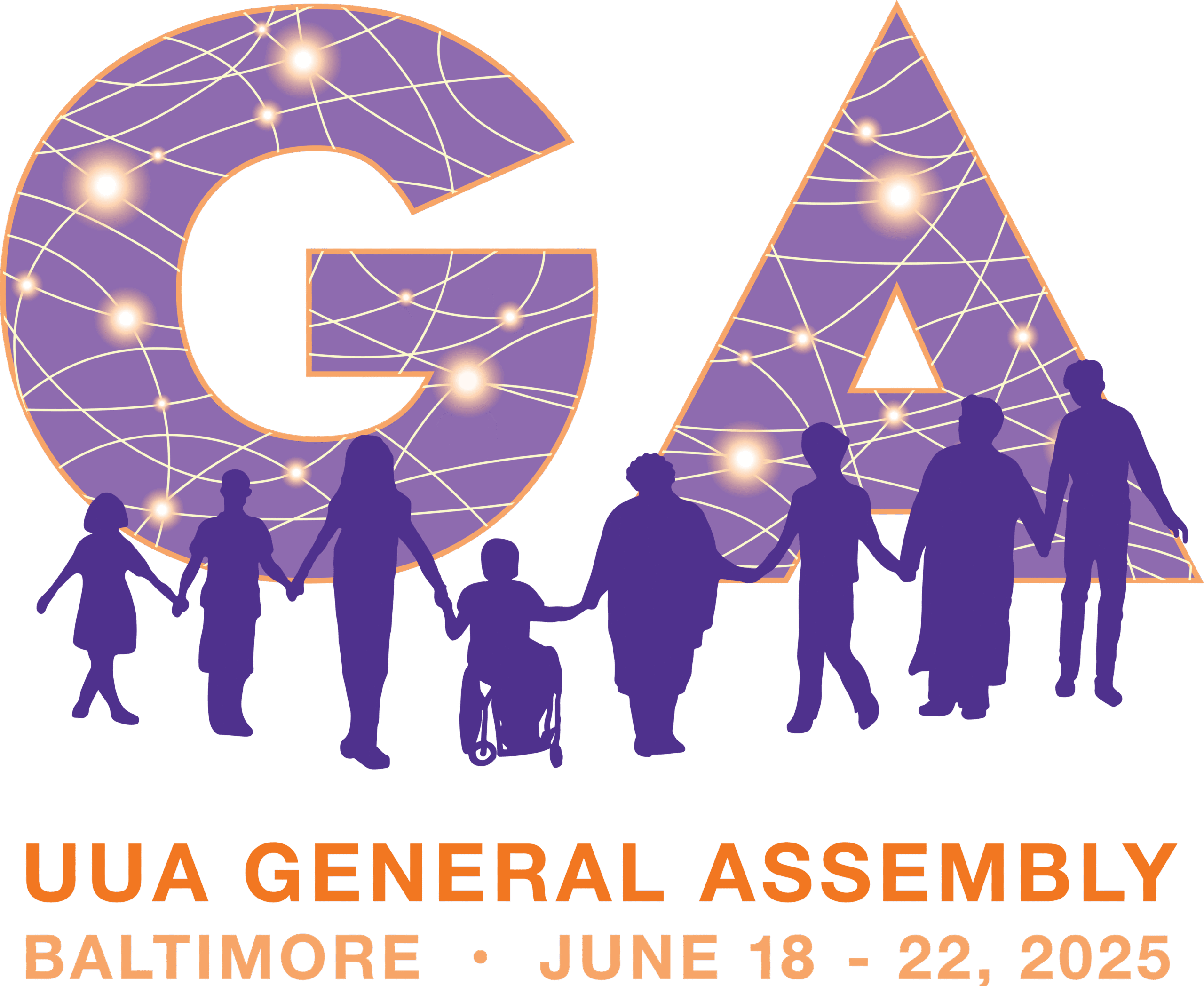If you’ve ever been to a General Assembly, you know that there are workshops on a variety of topics. These often offer some frameworks or insights that can be meaningful in local churches. We don’t have to reinvent the wheel, and there are lots of communities to learn from. In some ways, our faith tradition’s annual gathering illuminates the places where we most need the strength of the larger structure.
One reason churches send delegates to this annual event is to vote on important issues that affect the entire network of congregations. Some years, these votes may feel unimportant. And yet, these collective decisions are even more important for Unitarian Universalists than they might be for a lot of religious bodies.
You know that Unitarian Universalists don’t have a doctrine. It’s one of the things that distinguishes us from most other spiritual traditions. We welcome a whole spectrum of theologies and identities, without requiring anyone to state “I believe x, and therefore I belong.” That means that we potentially get to journey with a diverse group of people who commit to something other than a narrow set of religious beliefs.
The other side of this coin is that, should we need a foundation for our actions as a religious institution, we don’t have a clear doctrine to point to. The collective decisions of our delegates are the closest thing we have. And this matters in a legal context.
Many of us have existed for most of our lives in a society where our religious convictions weren’t legally challenged. Other people may have questioned whether our beliefs were correct, or whether our spiritual community was legitimate, but those debates had no legal ramifications. They were more a matter of opinion.
In ways that most of us have never experienced, the current administration is attempting to directly dismantle what we have known as religious freedom. When houses of worship are no longer safe spaces for immigrants and asylum seekers, when churches are threatened by the government for affirming trans people and advocating for them to receive appropriate care, when there are threats of revoking tax exempt status because our spiritually-grounded justice work fails to align with the administration’s agenda… our collective voice as recorded at our General Assemblies matters. Legally.
Some of us may think of “doctrine” as confining or limiting, and in a way it is. We set boundaries through our collective decisions when delegates from all of our congregations join together. We bring definition to our spirituality by naming the collective boundaries that articulate how we will live our faith.
Institutionally, we can make some decisions locally, but we also don’t have to fight every battle as individual congregations. We’ve united our voices with our entire association of congregations. The Unitarian Universalist Association has a legal foundation to defend against these challenges because of our collective voice and votes. This is one reason I think General Assembly matters. And I’m grateful to all of our congregants who have served as delegates, whenever that may have been, to help shape and define the meaning of our faith.
Share this post:
